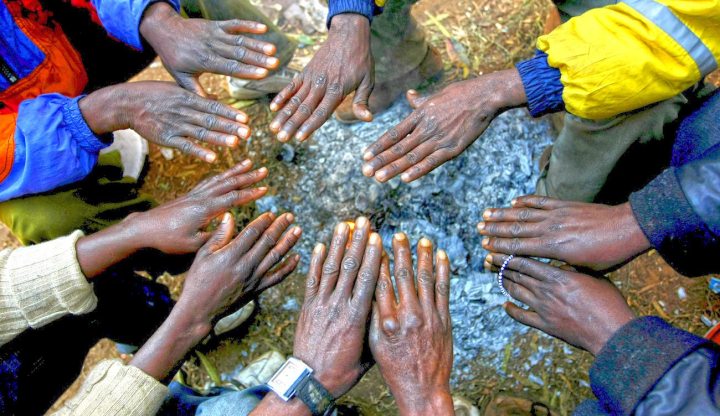South Africa
Help@Hand brings hope for foreign nationals

A Lawyers for Human Rights initiative has brought hope for foreign nationals. Help@Hand, a first in South Africa, is a mobile service that provides low-cost human rights information to foreign nationals living in South Africa, and some measure of optimism. By BHEKI C. SIMELANE.
Non-nationals living in South Africa can breathe a sigh of relief following the launch of a mobile information tool that will equip non-nationals with low-cost human rights information. The tool which launched in Cape Town on 28 April launched in Johannesburg on 5 May and is set for a Durban launch on 12 May.
The tool is a result of collaboration between Lawyers for Human Rights, the Praekelt Foundation and the United States Bureau of Population, Refugees and Migration. (The Praekelt Foundation is a nonprofit body founded in 2007. It’s dedicated to improving the lives of poverty-stricken people in society through the use of mobile technology.)
Help@Hand is still in its preliminary stages but already is drawing positive reactions from various quarters. This could underscore South Africa’s commitment in ensuring the protection of the rights of foreign nationals and also insulate the terror caused through years of xenophobic assaults.
The tool encourages non-nationals to report xenophobic flares: “It’s a great service. It’s a fantastic idea. I like the fact that it’s personal and one can report without fear of intimidation. I wouldn’t have left Orange Farm for the hostile streets of Johannesburg had this service existed during the 2008 xenophobic violence. My life went from bad to worse since then as I lost my home and all its belongings,” said Prince Sibanda, a 38-year-old Zimbabwean.
Ongoing national challenges facing non-nationals, such as xenophobia and access to basic services such as health facilities and education, prompted the undertaking of this initiative. In the meantime, Lawyers for Human Rights continues to provide free legal services to vulnerable and marginalised non-nationals, ensuring that their constitutional rights in South Africa are upheld and understood.
The service will also allow users to report corruption, to which many defenceless non-nationals have fallen victim. Corrupt law enforcement officers, immigration officials and Home Affairs officials continue to haunt non-nationals’ stay in South Africa. The Marabastad Refugee Reception Centre in Pretoria has been fingered, and so have many other officials from Home Affairs offices.
Another foreign national, 43-year-old Raphael Otti from Malawi, said he had been repeatedly swindled by Home Affairs officials. “In the seven years that I have been in the country I still haven’t got the proper paperwork because each time I have paid for fake papers, only realising this when I want to undertake serious business initiatives to improve the lives of my family back home.
“I think this is a great service that shows that South Africans are serious about the protection of the rights of non-nationals. I’m just a little disappointed that the government of South Africa could not take action earlier, but very optimistic at the future,” Otti said. To his disappointment, Otti still doesn’t have the proper papers to remain in South Africa.
Help@Hand will provide non-nationals with information on permits, health, education and unlawful arrest and also allow users to report xenophobia and unlawful arrest. The tool will be available in four languages: English, French, Somali and Kiswahili.
Non-nationals who wish to access the tool for assistance can dial *120*8864*1538*.
Earnest Ramali, 55, from Malawi, said the service was, “a great idea and with the potential to minimise a sizeable figure of the challenges currently faced with non-nationals living in South Africa. I also like the fact that we can access it on our mobile feature phones. It’s fantastic – with such programmes non-nationals living in South Africa can no longer live in constant fear,” said Ramali.
Project Assistant Stella Longwe said limiting xenophobia was not the main attraction for the project. “We are not trying to limit xenophobia. What we are doing is we are using a tool to inform refugees, asylum seekers and migrants about their rights. When we use the tool to report xenophobia it’s only for research purposes and also kind of derive an early warning system against xenophobia,” Longwe said. DM
Photo: African immigrants, displaced by anti-foreigner violence in Johannesburg, warm their hands around a small fire outside the Jeppe police station in the city, May 27, 2008. At least 56 people were killed when rioting mobs attacked immigrants with knives and stones, raping women and burning shops and homes to the ground in shanty towns around the country. REUTERS/Mike Hutchings (SOUTH AFRICA)


















 Become an Insider
Become an Insider